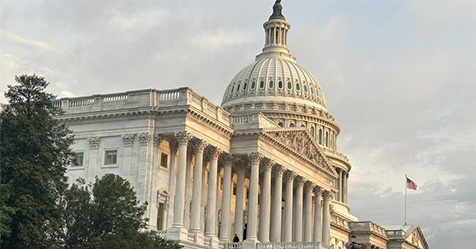Study Shows Infection Prevention Varies by Role
Hand hygiene was the infection precaution most often performed incorrectly.
A new study published in the American Journal of Infection Control (AJIC), based on a survey of healthcare professionals conducted during the height of the COVID-19 pandemic, has found that adherence to infection prevention guidelines varies by job position.
It further suggests that new efforts might be needed to strengthen infection prevention precautions, in order to protect staff members at the highest risk of exposure to dangerous pathogens.
According to the AJIC, this is the first study of COVID-19 pandemic-era infection precautions to include a broad variety of healthcare jobs, including environmental services (EVS) workers. Other infection prevention studies have been performed to understand how healthcare professionals’ compliance with precaution guidelines held up during the COVID-19 pandemic, but until now most of those studies have focused only on physicians and nurses.
The 191 respondents, all healthcare personnel at the University of North Carolina Medical Center, were grouped into three broad categories: physicians, advanced practice providers, physician assistants, and nurse practitioners (45%); registered nurses (27%); and “other,” which included therapists, dieticians, members of food services, and EVS employees (28%). The participants were survey between July 2020 and January 2021 and were asked to report their experiences in exposure to the COVID-19 virus (SARS-CoV-2) and their level of adherence to infection precaution protocols at that time. Beyond the self-reporting, researchers also observed healthcare staff and monitored their compliance with infection precautions to collect validation data.
The analysis showed statistically significant differences between job role, the risk of potential exposure to SARS-CoV-2, and the likelihood of making errors in infection precaution adherence.
More than half (57.4%) of the registered nurses completed job tasks that placed them at a higher risk of SARS-CoV-2 exposure, compared to nearly 29% of the physician category and 38% of the “other” category. Healthcare personnel who were more likely to be exposed to the virus were also 5.74 times more likely to report at least one error in infection precautions in the previous two weeks, such as failure to don protective gear. Registered nurses (33.3%) and physicians (26.5%) were also more likely to have committed an error in infection prevention guideline adherence in the previous two weeks than participants within the “other” category (9.6%).
The study also found that hand hygiene was the infection precaution most frequently performed incorrectly, with study observers noting that hand and glove hygiene protocols were only adhered to 40% of the time between visits to rooms with patients who had COVID-19.
“While error rates varied by job type, what this study really shows is that all three groups of healthcare personnel were at risk of SARS-CoV-2 exposure and were making errors in adherence to infection prevention protocols during the height of the pandemic,” said Emily J. Haas, PhD, who was the lead author of the study. “This is a clear demonstration that we need to improve engagement in our training for emergency preparedness and to create a more strategic response that will help our healthcare workers stay safe even in times of extreme stress.”


